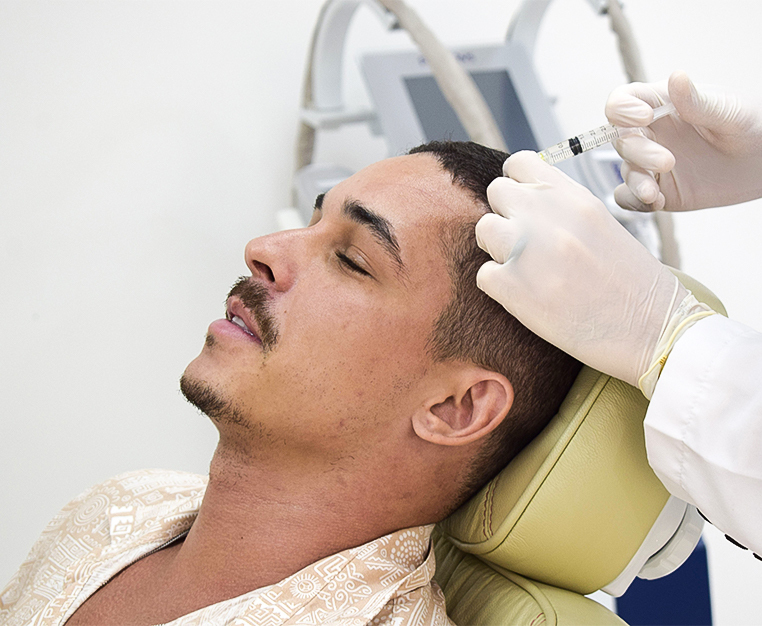Hair loss is a common concern that affects millions of people worldwide, both men and women. While it is primarily viewed as a personal issue, some may wonder whether it has any significant impact on a nation’s economy. On the face of it, it may not seem like a condition that directly hampers one’s ability to contribute to the workforce or the economy as a whole, but the psychological and emotional aspects of hair loss can influence individuals in different ways. The question is, could these ways have an impact on a country’s coffers?
In this article, we’re going to explore the relationship between hair loss and the economy to determine if there are any noteworthy connections. Keep scrolling to find out more!
The Evidence
While much work has been done to assess the impact of hair loss on an individual’s quality of life, there has been little done to assess its economic consequences. Researchers from the Kyorin University Faculty of Medicine in Tokyo set out to address that by looking at the effect that alopecia areata (AA) has on the Japanese economy.
Their study found that AA cost the Japanese economy over 112.7 billion yen annually. That’s about 857 million US dollars. The vast majority of that figure (just over 78%) consisted of productivity losses, with the cost of medication being responsible for most of the rest.
The productivity losses were mostly of the presenteeism variety rather than absenteeism. In other words, people with AA turn up for work, but their performance is affected by having to deal with their condition. The study was small, with just 235 subjects, but the researchers also used other data on AA sufferers across Japan to come up with their figures.
Bigger Picture
While the study focused on AA in particular, there can be little doubt that its findings apply to other forms of hair loss too. The effects of androgenetic alopecia may not be as severe or dramatic as AA, but they are real, nonetheless. And while individuals react differently to hair loss, there is enough documented evidence to show that the condition can have serious psychological and emotional effects on the men and women experiencing it.
For example, hair loss can affect one’s self-esteem and confidence, leading to reduced assertiveness and a reluctance to pursue career opportunities. This psychological impact may also indirectly influence job performance.
Research also suggests that physical appearance, including one’s hair, can influence first impressions and judgments in social and professional settings. In some industries, such as entertainment, fashion, or sales, where image and presentation play a vital role, hair loss may have more significant implications. Sports stars, actors and TV presenters have all spoken honestly about how hair loss affected their careers and the steps they took to put that right.
Booming Industry
It is those ‘steps’ that provide an interesting contrast to the negative economic impact of hair loss; if hair loss is a drag on the economy, then the hair restoration business provides a massive boost to the global economy. Countless products and services, such as hair transplants and hair growth treatments, cater to individuals seeking solutions for their hair loss concerns. The global market for hair loss treatments is valued at billions of dollars, and it continues to grow as more people seek remedies and solutions. One market research report projected that the hair restoration business would be worth over 30 billion US dollars by 2032.
The hair loss industry not only generates revenue but also creates employment opportunities for professionals in fields such as medical research, trichology and hair restoration surgery. This sector contributes to economic growth by supporting businesses, manufacturing and the overall market ecosystem. It also drives innovation as scientists and researchers continually strive to develop new and improved treatments for hair loss.
It is also worth noting that modern advancements in hair loss treatments often require minimal downtime, allowing individuals to balance their personal care with their professional responsibilities more easily.
Final Thoughts
While hair loss is primarily a personal concern, it undoubtedly has some impact on the economy. The study published by Japanese researchers has calculated the negative impact of AA, but there can be little doubt that other types of hair loss have a similar effect. In marked contrast, the hair restoration industry contributes to economic growth by providing products and services to individuals seeking solutions to their hair loss problems.
If you’re looking for a solution to your hair loss problem, then look no further than Vinci Hair Clinic. We’re one of the largest hair restoration organisations in the world. That means we provide an unrivalled range of treatments and procedures. We also offer a free, no-obligation consultation to all first-time clients. That can take place face-to-face at one of our many clinics or over the phone using photographs, whatever suits you best. Get in touch through our website or social media pages to schedule your appointment!


